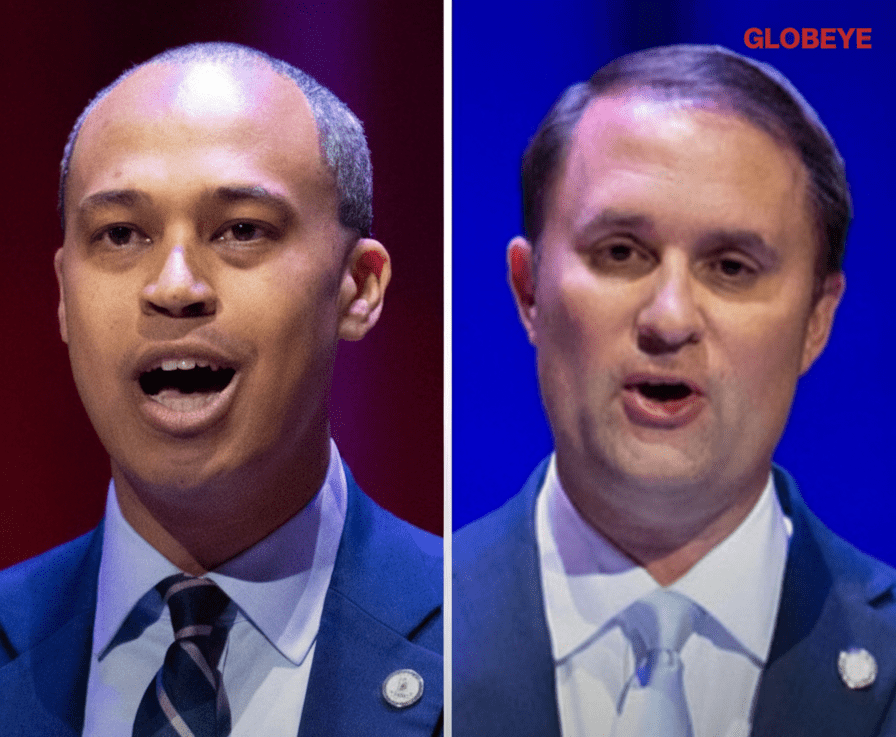Congresswoman Lauren Boebert Faces Intense Backlash for Mexican-Themed Halloween Outfit Featuring ICE Costume
Congresswoman Lauren Boebert, the Republican representative from Colorado’s 3rd Congressional District, has ignited a firestorm of criticism after attending a Halloween party in what many describe as a culturally offensive costumed pairing: she dressed in traditional Mexican attire and a sombrero while her boyfriend, identified as Kyle Pearcy, went in a U.S. Immigration and Customs Enforcement (ICE) vest and fatigues. According to multiple reports, photographs and social media posts captured the pair, with Boebert holding a sign reading “Mexican Word of the Day: JUICY. Tell me if JUICY ICE coming.”

The incident occurred during a party in Loveland, Colorado, late on October 31, and the images swiftly circulated online. The outfit has drawn condemnation from Latino community leaders, political rivals, and commentators who say it mocks Mexican culture and immigrant experiences, while also citing the sign and the ICE imagery as invoking anti-immigrant sentiment. One guest reportedly told ABC News it was “the most disgusting thing I have ever seen… even the conservatives at the party were in shock. People avoided them.”
Boebert’s office responded with a brief statement dismissing the outrage, saying simply, “It’s a Halloween costume,” and turning the topic toward national politics, accusing Senate Democrats of fueling a government shutdown that is impacting millions of families. “Tell our Senators to vote for the CR and open the government,” the statement read.
The broader context makes this moment all the more significant. Boebert has long been a polarizing figure in Congress, gaining national attention for outspoken conservative views, controversial comments, and frequent clashes with critics. This latest episode raises questions about the responsibilities of public figures when engaging in cultural or political commentary — even when done under the guise of costume or satire.
Critics argue that Boebert’s attire isn’t simply a matter of bad taste but reflects deeper underlying attitudes toward race, immigration, and representation. Latino community leaders in Colorado voiced sharp dissent. Colorado State Senator Julie Gonzales, co-chair of the Democratic Latino Caucus, called the outfit “a mockery of our culture,” saying children of immigrant families are “not costumes for your juvenile stunts.” Likewise, Stacy Suniga of the Latino Coalition of Weld County said Boebert “should be ashamed of herself… the bigotry and ignorance are clearly evident in her chosen apparel.”
From Boebert’s perspective and that of her defenders, this was a lighthearted Halloween joke blown out of proportion by politically motivated opponents. The statement released by her office pointed to longstanding frustrations with congressional inaction and portrayed the backlash as “distraction” from pressing policy issues — most notably the ongoing federal government shutdown. Yet for many, the comment that “It’s a Halloween costume” rings hollow given the historical and social weight of both the imagery and the message.
The interplay between costume and commentary is at the heart of this debate. This was not simply a pair of matching costumes. The combination of Mexican-themed dress, ICE-agent uniform, and a mocking sign suggests a layered message: trivializing immigration enforcement, cultural identity, and Latino language. While Halloween invites irreverence, public officials carry added responsibility — because their actions and appearances are interpreted not purely as personal expression but as reflections of the values they hold and represent.
This episode also raises questions about the influence of symbolism. The acronym ICE is directly associated with one of the most contested agencies in U.S. immigration policy, and using it as part of a costume at a party while referencing a pun on the Spanish word “juicy” ties the imagery to past and present controversies surrounding enforcement, detention, and deportation. Critics view this as a form of endorsement rather than satire. Even if the intent was humorous, the reception is unmistakably serious.
Observers note that Boebert’s office could have mitigated the fallout by acknowledging the hurt caused and engaging in dialogue, yet the deflection toward partisan politics instead of the cultural harm has further fueled the backlash. In a time when immigrants and Latino communities already feel under pressure, a public figure appearing to mock their language and experiences sends a striking signal. Some political analysts suggest this misstep may overshadow Boebert’s broader legislative agenda and hamper her influence on key issues.
The timing is also notable: at a moment when conversations around immigration reform, cultural sensitivity, and representation are at the forefront of American public life, costumes that tap into those themes are no longer seen as harmless fun. Rather, they are scrutinized as part of the broader social discourse. For congressional representatives, whose work centers on law-making, oversight, and public service, the line between personal expression and public responsibility is thinner than ever.
For constituents in Colorado and beyond, this development invites reflection. Some supporters may see this as a frivolous storm in a teacup — a cultural joke misinterpreted by a liberal media. Others, particularly in minority communities, see it as emblematic of a deeper disregard for cultural dignity and respect. The difference in perception highlights the enduring divide in how identity, humor, and representation are navigated in public life.
At a human level, the incident serves as a reminder that even in celebrations meant for escapism, the weight of identity and symbolism persists. A sombrero may seem innocuous on one night in October; in the hands of an elected official, it becomes a signifier. The mock sign that followed — centering on “JUICY ICE” — may have been intended as a pun, but for many, it read as a sneering commentary on immigrants, Spanish language speakers, and Latino communities at large.
As the story unfolds, it remains to be seen whether Boebert will engage in any direct outreach with disappointed or hurt communities, or whether this moment will be buried under the ongoing churn of Washington headlines. What is clear is that the controversy has reignited the long-standing question of how public officials should navigate cultural boundaries in a diverse society — and whether “just a costume” is still a viable defense when the people it impacts disagree.
For now, the images stand: a congresswoman in a sombrero holding a sign mocking a language, an ICE vest draped across a partner, and a social gathering that swiftly evolved into a public relations crisis. Whether the fallout translates into tangible political cost or becomes a momentary blip remains uncertain. But as the stories and responses accumulate, the impact on trust, representation, and respect may linger far longer than October’s festivities.



